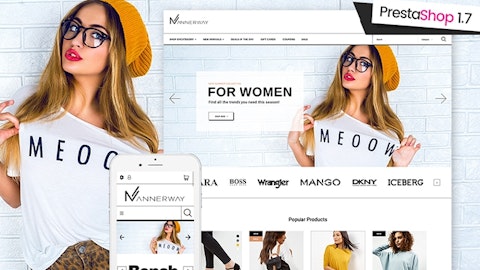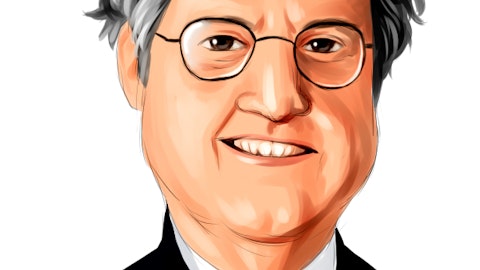Tollymore Investment Partners, a private investment partnership firm that invests in small quantities of publicly listed companies, published its third-quarter 2020 Investor Letter – a copy of which can be downloaded here. A return of 39.5% was recorded by the fund for the 1st 9 months of 2020, way above its MSCI ACWI benchmark that returned 13%. You can view the fund’s top 10 holdings to have a peek at their top bets for 2021.
Tollymore Investment Partners, in their Q3 2020 Investor Letter said that they noticed the consistent progress of Farfetch Limited (NYSE: FTCH) that is why they were able to maintain their position in the company. Farfetch Limited is an online luxury fashion retail platform that currently has a $19.7 billion market cap. For the past 3 months, Farfetch Limited delivered a massive 114.78% return and settled at $57.99 per share at the closing of January 15th.
Here is what Tollymore Investment Partners has to say about Farfetch Limited in their Investor Letter:
“The more subtle observation from the types of errors is that for businesses with potentially exponential success outcomes, oligopolistic participation in a particular digital migration may not be enough. As such, we expect several of our current holdings to be the outright winners in their respective industries.
One example is one of Tollymore’s largest holdings, Farfetch, a global luxury digital marketplace for brands, retailers, and consumers. We acquired our interest in FTCH for $14.4/share in May 2020.
FTCH exists because of a compelling consumer and supplier proposition. 80% of products sold online are in a multi-brand environment. This is evident in brands’ historic willingness to have concessions in department stores – that is where the footfall is. Luxury brands, in return, gain access to 2.5mn luxury customers across the globe. Given consumers’ preference for shopping in a multi-brand environment, brands have a choice to either partner with a vertically integrated retailer, or a marketplace. The clear preference for marketplace partnership is a function of (1) unit economics and (2) control.
FTCH’s take rate is c. 30%. Under traditional linear industry economics, a product costing $20 may sell for $100. The retailer typically keeps most of the $80 mark-up, perhaps around two thirds of it. The brand margin is therefore c. 25%. For a brand selling directly on FTCH, this might double to 50%, which is what is left after the product cost and FTCH’s 30% take rate are deducted from the retail price.
In addition to this gross margin advantage, brands can achieve incremental sales by making their inventory available to a global luxury audience without increasing their invested capital or diminishing their returns on capital. The high take rate is also supported by special characteristics of luxury products – high gross profit products and a fragmented supply base characterized by family-controlled companies seeking to protect brand integrity. By partnering with FTCH, brands retain control over visual representation and pricing, mitigating potential concerns around brand dilution.
FTCH does not compete with any other large luxury marketplace. If the same pattern of disruption happening in music, travel and communication, is repeated here, then the leading player will be a platform, not a retailer or a brand. CEO and founder Jose Neves is playing for winner take all. His strategy is predicated on the logical assumption that consumers will always gravitate to one single app, forcing vendors to gravitate to one single platform. And we think that this is most likely to be FTCH given its scale advantage and given it has found itself, through good fortune or managerial foresight, to have the right model at the right time.”

Rawpixel.com/Shutterstock.com
Last December 2020, we published an article telling that Farfetch Limited (NYSE: FTCH) was in 40 hedge funds’ portfolio, almost making to its all time high statistics of 43. FTCH delivered a spectacular 349.53% return in the past 12 months.
Our calculations showed that Farfetch Limited (NYSE: FTCH) does not belong to the 30 most popular stocks among hedge funds.
The top 10 stocks among hedge funds returned 216% since the end of 2014 and outperformed the S&P 500 Index ETFs by more than 121 percentage points. We know it sounds unbelievable. You have been dismissing our articles about top hedge fund stocks mostly because you were fed biased information by other media outlets about hedge funds’ poor performance. You could have doubled the size of your nest egg by investing in the top hedge fund stocks instead of dumb S&P 500 ETFs. Below you can watch our video about the top 5 hedge fund stocks right now. All of these stocks had positive returns in 2020.
Video: Top 5 Stocks Among Hedge Funds
At Insider Monkey we scour multiple sources to uncover the next great investment idea. For example, Federal Reserve has been creating trillions of dollars electronically to keep the interest rates near zero. We believe this will lead to inflation and boost real estate prices. So, we recommended this real estate stock to our monthly premium newsletter subscribers. We go through lists like the 10 most profitable companies in the world to pick the best large-cap stocks to buy. Even though we recommend positions in only a tiny fraction of the companies we analyze, we check out as many stocks as we can. We read hedge fund investor letters and listen to stock pitches at hedge fund conferences. You can subscribe to our free daily newsletter on our website.
Disclosure: None. This article is originally published at Insider Monkey.



